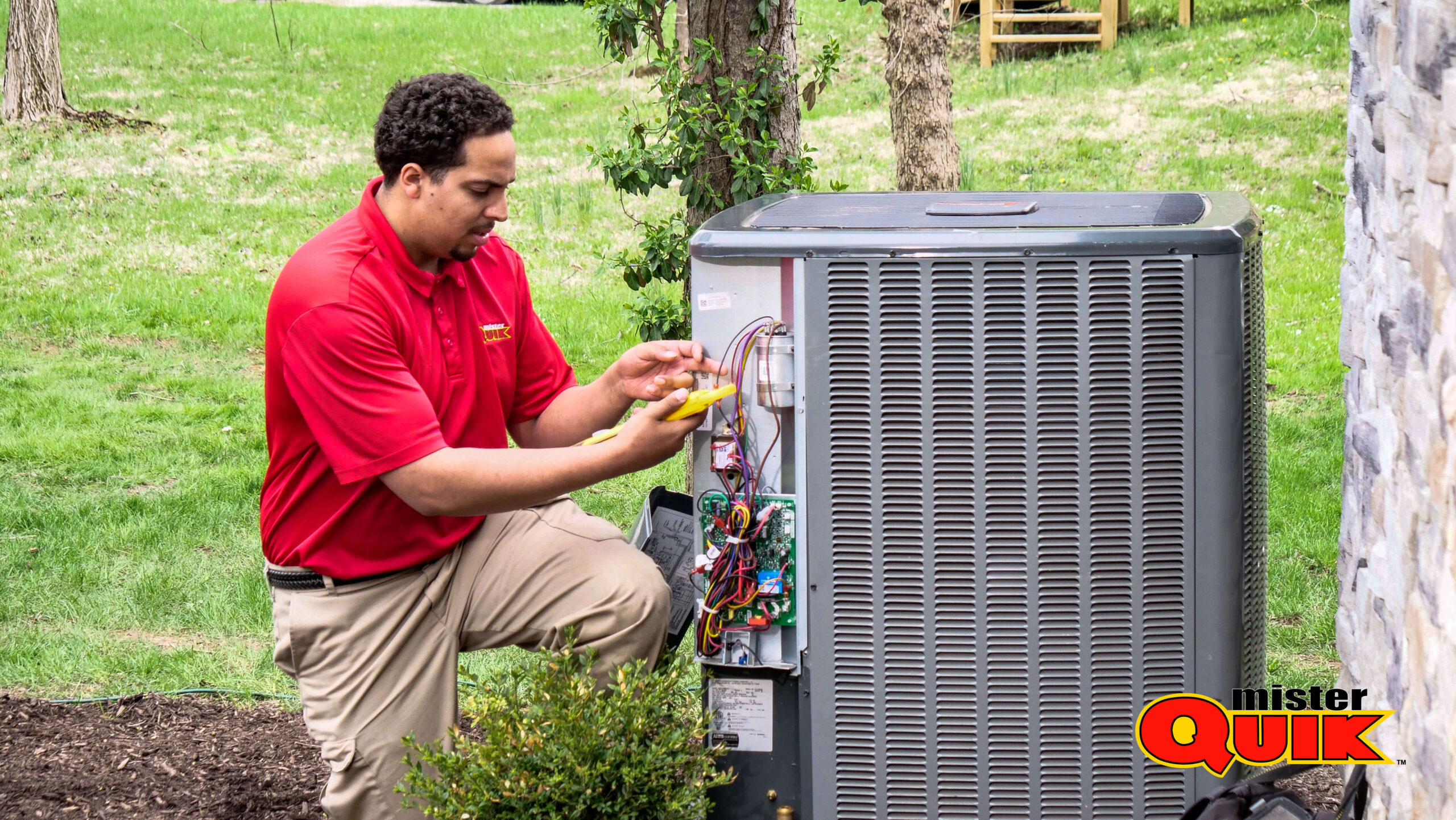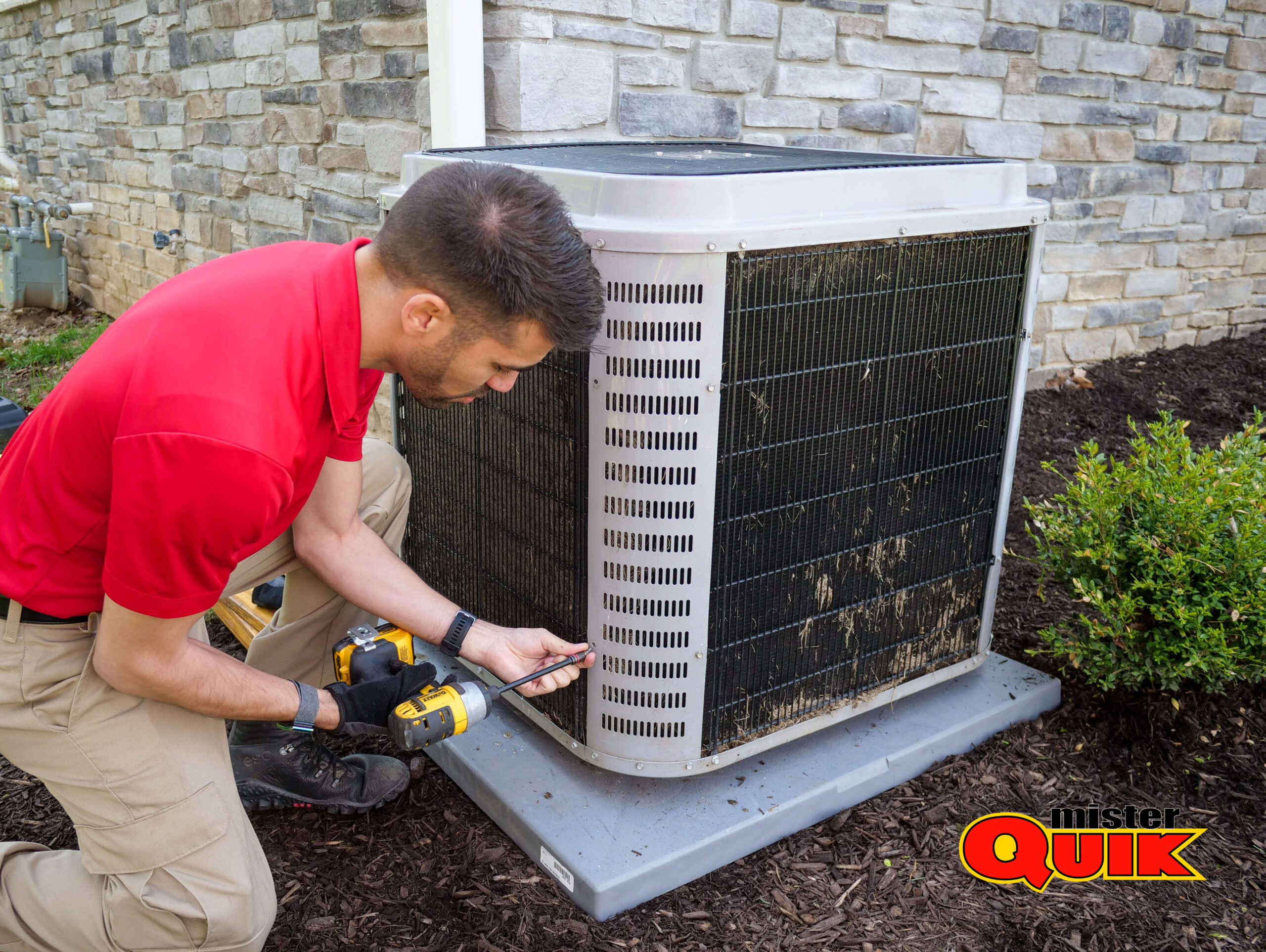Cooling Emergency In Plainfield
Schedule on your own without making a call. Click the button below to get started!

Cooling Experts In Plainfield
When a Plainfield Cooling Emergency strikes, trust Cooling Experts to swiftly resolve the issue and restore comfort to your home. Here’s what these skilled professionals bring to the table:
- Rapid Response: In the event of a Plainfield Cooling Emergency, Cooling Experts are equipped to respond promptly, minimizing downtime and discomfort.
- Diagnostic Expertise: With specialized training and experience, they can quickly diagnose the root cause of the emergency, whether it’s a malfunctioning compressor, refrigerant leak, or other issue impacting your cooling system.
- Effective Solutions: Armed with advanced tools and techniques, Cooling Experts implement effective solutions tailored to the specific needs of your Plainfield Cooling Emergency, ensuring efficient and lasting results.
- Emergency Repairs: From repairing faulty components to addressing system-wide malfunctions, they perform emergency repairs with precision and care, prioritizing the restoration of your cooling system’s functionality.
- Preventive Guidance: Beyond resolving the immediate emergency, Cooling Experts offer valuable advice on preventive maintenance measures to help safeguard your cooling system against future emergencies.
When faced with a Plainfield Cooling Emergency, rely on the expertise of Cooling Professionals who are dedicated to delivering prompt, effective, and reliable solutions to keep your home cool and comfortable.
What Is Considered A Cooling Emergency?
Interested in understanding what qualifies as a Plainfield Cooling Emergency? Here’s a breakdown to help you identify when immediate assistance is needed:
If your cooling system has completely stopped working, especially during hot weather, it's a clear indicator of a Cooling Emergency.
When your air conditioner is running but not producing cold air, it signifies a potential issue that requires urgent attention.
Strange noises like banging, hissing, or grinding, along with unusual odors, could indicate serious problems with your cooling system.
Refrigerant leaks not only compromise the efficiency of your system but also pose health risks. Addressing them promptly is crucial.
If your cooling system is cycling on and off frequently, it could indicate underlying issues that need to be addressed to prevent further damage.
Try cleaning your air conditioner’s filter and the coils to see if improving the airflow fixes the problem. If there is ice buildup, you’ll need to run the unit with just the fan in order to melt it off. If that doesn’t get the unit blowing cold air again, it could be refrigerant levels are low.
For many, 72 degrees is the optimal indoor temperature, but on days that surpass 92 degrees your AC will be running extra hard to meet those expectations. When outside temperatures are pushing 100 degrees, try setting your thermostat at 78-80 degrees.
Setting your home’s temperature at 79 degrees when the outside temperature is over 90 degrees can help you save on cooling costs. It’s generally more energy-efficient to keep your thermostat set higher when it’s hot outside.
The EPA prohibits the handling of Freon™ without a license. That means homeowners can purchase Freon for their AC but must hire a licensed HVAC pro to handle and install it. In other words, the safest option is to let a pro take this one.
Having too much refrigerant in your AC can damage the compressor. This can happen because the excess refrigerant will likely collect inside the compressor and cause subcooling, wherein temperatures are below normal. Furthermore, the extra refrigerant can flood the compressor and damage its mechanical parts.
Air Conditioning Repair in Plainfield


In need of urgent assistance for a Plainfield Cooling Emergency? Here’s what to expect from air conditioning repair services:
- Diagnostic Assessment: A skilled technician will conduct a thorough evaluation of your cooling system to pinpoint the source of the emergency, such as compressor failure or refrigerant leaks.
- Immediate Repairs: Once the issue is identified, prompt repairs will be carried out to restore functionality to your air conditioning system swiftly and efficiently.
- Component Replacement: Faulty components contributing to the emergency, like damaged coils or malfunctioning thermostats, will be replaced to ensure optimal performance.
- Refrigerant Recharge: If a refrigerant leak is detected, the system will be recharged with the appropriate refrigerant to restore cooling efficiency.
- Electrical Checks: Electrical connections and components will be inspected for any issues that may be causing the emergency, such as faulty wiring or blown fuses.
- System Testing: After repairs are completed, the entire system will undergo testing to ensure it’s operating correctly and effectively cooling your home.
- Preventive Maintenance Advice: To prevent future emergencies, you’ll receive valuable advice on routine maintenance tasks and how to recognize warning signs of potential problems.
When faced with a Plainfield Cooling Emergency, rely on experienced professionals for air conditioning repair services that prioritize prompt solutions and your comfort.
Why Do Air Conditioners Need Freon?
Do you want to know why air conditioners rely on Freon, especially during a Plainfield Cooling Emergency? Here’s a simple breakdown:


Freon, or refrigerant, is the substance responsible for absorbing heat from the indoor air and transferring it outside, allowing your air conditioner to cool your home effectively.


As Freon circulates through the system, it undergoes a cycle of compression and expansion, facilitating the transfer of heat from inside your home to the outdoors.



Freon's properties make it an efficient medium for heat exchange, ensuring that your air conditioner operates at optimal efficiency, especially during hot Plainfield summers.



By controlling the amount of Freon in the system, technicians can adjust and regulate the temperature inside your home, keeping you comfortable even during a Cooling Emergency.
What Is An Air Conditioning Unit Recharge?
Have you been asking what an air conditioning unit recharge entails, especially during a Plainfield Cooling Emergency? Let’s break it down:
Replenishing Refrigerant
Over time, air conditioning systems may experience leaks or gradual loss of refrigerant, which is crucial for cooling. During a recharge, technicians replenish the refrigerant levels to ensure optimal cooling performance, particularly in a Plainfield Cooling Emergency.
Pressure Adjustment
Refrigerant levels affect the pressure within the system, and an imbalance can lead to inefficient cooling or system malfunctions. A recharge involves adjusting the pressure to manufacturer-recommended levels for efficient operation.
Leak Detection
Before adding more refrigerant, technicians will often perform leak detection tests to identify and address any sources of leakage, preventing future issues and ensuring the effectiveness of the recharge, especially during a Plainfield Cooling Emergency.
Seal Repairs
If leaks are detected, technicians will repair or replace seals and components to prevent further refrigerant loss, promoting long-term system reliability and efficiency.
System Performance Testing
After the recharge, technicians will thoroughly test the air conditioning unit to ensure that it’s operating at optimal performance levels, providing effective cooling during a Plainfield Cooling Emergency.
Environmental Considerations
Proper handling and disposal of refrigerants are crucial for environmental protection. Certified technicians adhere to regulations and guidelines to minimize environmental impact during a recharge, especially in emergencies.
Knowing the process of an air conditioning unit recharge can help you appreciate its importance, especially when facing a Plainfield Cooling Emergency.
How Often Does Home Air Conditioning Need to be Recharged?
Have you ever wondered how often your home air conditioning system needs to be recharged, especially during a Plainfield Cooling Emergency? Let’s explore:
Older air conditioning systems may experience refrigerant leaks more frequently, necessitating recharges more often than newer, well-maintained systems.
Homes in Plainfield with high cooling demands, such as during hot summers or frequent use, may require more frequent recharges to maintain optimal performance, especially in a Cooling Emergency.
The size and capacity of your air conditioning unit can impact how often it needs to be recharged. Larger systems may require more refrigerant and thus more frequent recharges, particularly during a Plainfield Cooling Emergency.
Regular maintenance, including leak inspections and seal replacements, can help prevent the need for frequent recharges. Neglected systems are more prone to refrigerant loss and may require emergency recharges in Plainfield.
Extreme weather conditions, such as heatwaves or severe temperature fluctuations, can put additional strain on your air conditioning system, potentially increasing the frequency of recharges during a Cooling Emergency in Plainfield.
Being aware of the factors influencing the frequency of air conditioning recharges can help you better anticipate and address Cooling Emergencies in Plainfield, ensuring your home stays cool and comfortable.
Troubleshoot Checklist:
- Ensure the power source is connected and functioning.
- Check thermostat settings to ensure they’re set to cool.
- Verify that air filters are clean and not clogged.
- Inspect the outdoor unit for debris blocking airflow.
- Listen for banging, hissing, or grinding noises.
- Investigate any unusual odors like burning or musty smells.
- Look for visible signs of leaks, such as puddles or oily residue.
- Monitor refrigerant levels and consult a professional if low.
- Check air vents for blockages or obstructions.
- Ensure proper airflow by keeping interior doors open.






